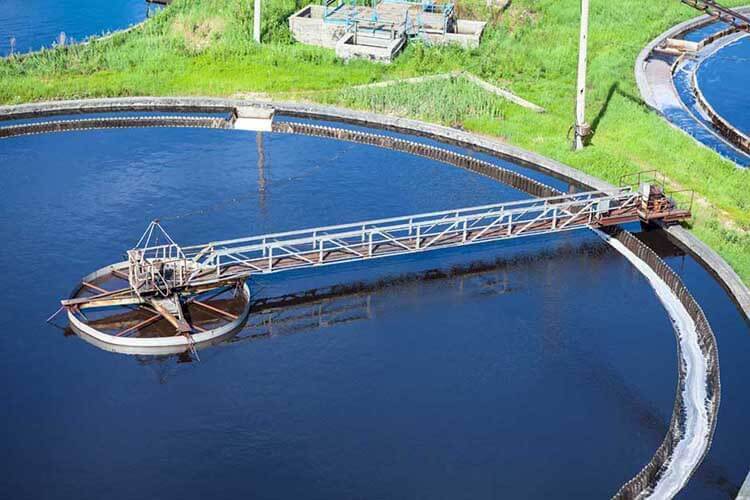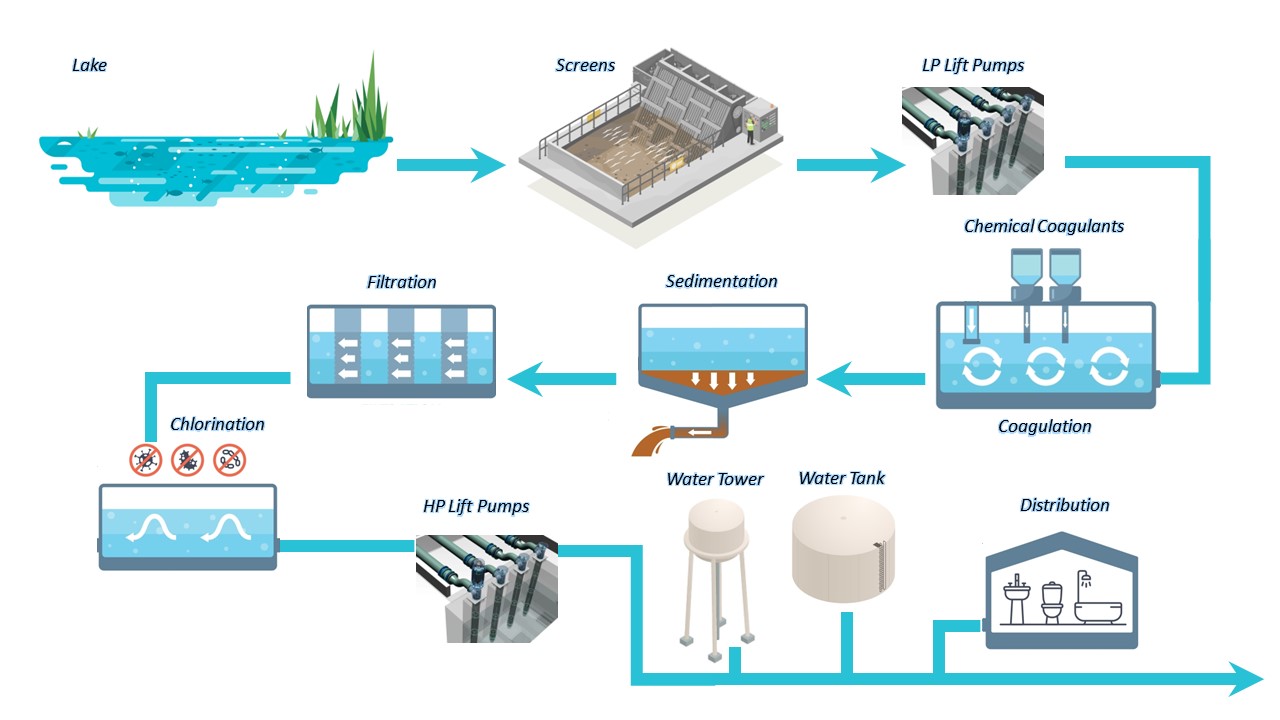Water Technology Startups and Sustainability: Creating Real-World Solutions
Wiki Article
Exploring Water Technology Startups: Just How They Revolutionize Lasting Solutions
Water Technology startups are becoming essential gamers in the pursuit for lasting options to worldwide water problems. These firms leverage cutting-edge technologies to improve water effectiveness and management. Their contributions deal with pressing obstacles such as deficiency and contamination. Nevertheless, in spite of their potential, they deal with different barriers that might influence their success. Recognizing these dynamics clarifies the future of water sustainability and the role these start-ups may play in forming it.The Importance of Water Technology in Today's World
As global water scarcity escalates, the importance of water Technology comes to be progressively noticeable. Water Technology plays a critical duty in resolving the obstacles positioned by enhancing and decreasing freshwater resources demand. It includes a wide array of technologies, consisting of sophisticated purification systems, wastewater treatment technologies, and smart watering solutions. These innovations not just boost the performance of water use but additionally promote lasting techniques throughout numerous markets, including farming, industry, and metropolitan development.The importance of water Technology prolongs beyond resource management. It cultivates durability versus climate adjustment impacts, such as floods and dry spells, by providing adaptive options for water preservation and management. Furthermore, it sustains public health and wellness by making sure access to safe and clean drinking water. As the world encounters growing water-related obstacles, the integration of cutting-edge water technologies is essential for cultivating lasting growth and safeguarding water accessibility for future generations.
Innovative Solutions From Water Tech Startups
While standard strategies to water administration have actually served their function, a brand-new wave of water technology start-ups is revolutionizing the market with innovative options (Water Technology Startups). These business leverage sophisticated technologies to address pressing water issues, such as shortage, contamination, and inefficient circulation. Several start-ups utilize synthetic knowledge and artificial intelligence to enhance water use and anticipate demand, causing even more sustainable practicesFurthermore, a number of firms concentrate on establishing innovative filtering systems that eliminate contaminants and make water secure for intake. Others discover decentralized water therapy technologies, allowing communities to manage their water sources better. In addition, some start-ups are introducing clever irrigation services that decrease water waste in farming, promoting environmental preservation.
Case Studies: Successful Water Technology Startups
Various water Technology start-ups have actually become leaders in resolving global water difficulties with innovative approaches. One remarkable example is Xylem, which concentrates on water analytics and smart infrastructure to enhance water use and minimize waste. Their options have been applied in different districts, demonstrating considerable renovations in water management efficiency.Another successful start-up, Zero Mass Water, has created solar-powered hydropanels that remove water vapor from the air, supplying lasting alcohol consumption water in deserts. Water Technology Startups. This Technology has actually been released in numerous countries, ensuring areas have accessibility to clean water
AquaVenture Holdings runs a diverse portfolio of water-as-a-service remedies, dealing with water shortage through desalination and wastewater therapy. Their projects have confirmed important in regions encountering serious water lacks, showcasing the capacity of ingenious water modern technologies to create long-term, positive influences. These case research studies highlight the transformative potential of start-ups in the water Technology market.
The Function of Smart Technology in Water Management
Smart Technology plays a crucial duty in modern water management by leveraging IoT applications to optimize source use. Data analytics enhances performance by giving actionable understandings, while remote surveillance solutions enable real-time oversight of water supply. With each other, these technologies change just how water is managed, advertising sustainability and operational performance.IoT Applications in Water
As water scarcity and administration challenges heighten globally, the combination of Internet of Points (IoT) applications has actually emerged as a crucial service in maximizing water resources. IoT Technology helps with real-time tracking and analysis of water supply, allowing much more effective usage and monitoring. Sensors deployed in numerous water infrastructures can track high quality, flow prices, and leakage, supplying beneficial data to stakeholders. This information encourages consumers and utilities to make informed choices, decreasing waste and improving preservation initiatives. Furthermore, wise watering systems use IoT to optimize water distribution for agriculture, guaranteeing that crops receive the ideal amount of water at the correct time. In general, IoT applications are changing conventional water administration techniques, fostering sustainability and resilience in water resource systems.Information Analytics for Performance
Harnessing data analytics is important for boosting performance in water management. Water Technology start-ups are significantly making use of advanced analytics to enhance source allotment and decrease waste. By assessing data from numerous sources, these start-ups can view it recognize patterns and trends that educate much better decision-making. Anticipating analytics can anticipate water demand, permitting utilities to readjust supply accordingly, thereby reducing surpluses and scarcities. Furthermore, real-time data handling enables the immediate detection of leaks and inefficiencies within distribution systems, greatly minimizing functional expenses. In addition, data-driven insights equip stakeholders to execute targeted preservation approaches, cultivating sustainable methods. Fundamentally, integrating data analytics right into water management not just improves procedures yet likewise promotes lasting sustainability in water resource use.Remote Tracking Solutions
While traditional water management systems commonly battle with inefficiencies, remote monitoring options are transforming how water resources are managed. These ingenious innovations make it possible for real-time information collection and evaluation, enabling stakeholders to keep an eye on water high quality, flow prices, and usage patterns from afar. Using sensing units and IoT devices, remote monitoring provides immediate understandings that facilitate aggressive decision-making. This change not only improves functional efficiency but also advertises sustainability by lowering water waste and maximizing resource allowance. In addition, remote monitoring systems can identify potential concerns before they intensify, therefore decreasing the risk of contamination or framework failure. As water Technology start-ups remain to develop these solutions, the industry is poised for substantial advancements in sustainable water administration practices.Difficulties Facing Water Technology Startups
Water Technology start-ups experience significant obstacles that can impede their growth and success. Secret concerns consist of safeguarding adequate financing, maneuvering via complicated regulative settings, and completing in a jampacked marketplace. These challenges call for strategic planning and innovation to overcome.Funding and Investment Obstacles
Innovation in water Technology holds enormous possibility for dealing with international difficulties, startups in this industry frequently face significant financing and financial investment hurdles. Numerous financiers remain careful, viewing the water sector as risky because of its complex regulatory landscape and long development timelines. Additionally, start-ups often struggle to demonstrate immediate earnings, which can hinder potential backers. Traditional endeavor funding may neglect water technology, preferring fields with quicker returns, such as technology or consumer products. Protecting grants and federal government funding can be affordable and lengthy, further making complex financial stability. As an outcome, several ingenious water Technology startups find themselves in a precarious placement, needing creative financing approaches to navigate these financial barriers and attain their objectivesGoverning Conformity Issues
Guiding regulatory compliance is a considerable challenge for start-ups in the water Technology sector, as they need to grapple with a myriad of regional, nationwide, and global laws. These guidelines often incorporate water quality requirements, environmental protection laws, and safety protocols, which can differ extensively across jurisdictions. Startups may locate it tough to navigate this complex landscape, especially when scaling operations or getting in new markets. The expenses connected with conformity can be considerable, drawing away resources far from innovation and item development. Furthermore, hold-ups in acquiring essential licenses or qualifications can hinder growth and market entrance. Subsequently, a robust understanding of regulative structures is vital for these start-ups to assure lasting procedures and stay clear of potential lawful consequences.Market Competitors Characteristics
As water Technology startups emerge in a competitive landscape, they encounter many obstacles that can hamper their development and technology. Established companies commonly dominate the market, leveraging sources and experience to keep their positions. Startups have problem with restricted financing, which restricts research study and development capacities, making it challenging to contend on Technology and rates. Additionally, the quickly progressing nature of water modern technologies needs continuous adjustment, more stressing start-up sources. Regulatory obstacles can complicate market entry, as compliance with ecological criteria is essential yet pricey. Attracting experienced ability in a niche area offers an additional barrier, as bigger firms may supply more appealing employment plans. As a result, these factors develop a complex atmosphere for water Technology start-ups aiming to succeed.
The Future of Water Technology and Sustainability

The future of water Technology will likely concentrate on incorporating expert system and data analytics to enhance water distribution and use patterns. By taking advantage of real-time data, companies can predict shortages and take care of resources better. Lasting methods will certainly end up being a keystone of the market, encouraging circular economic situations where water is recycled and dealt with. Inevitably, the continued development of water Technology will be essential in creating durable facilities with the ability of meeting the challenges postured by climate adjustment and population development while advertising ecological stewardship.
Frequently Asked Concerns
What Are the Trick Metrics for Evaluating Water Technology Startups?
Key metrics for assessing water Technology startups include market potential, scalability, consumer find out here now purchase prices, income development, technology development, governing compliance, environmental influence, affordable benefit, and group knowledge, all essential for establishing long-lasting practicality and success.Just How Can Individuals Assistance Water Technology Innovations?
Individuals can sustain water Technology advancements by purchasing start-ups, promoting for plan modifications, joining area campaigns, sharing understanding concerning sustainable methods, and promoting awareness of water concerns via regional occasions and social media.What Prevail Funding Sources for Water Tech Startups?
Usual financing resources for water technology start-ups include equity capital, federal government grants, crowdfunding systems, angel investors, and corporate collaborations. These economic avenues assist promote technology and growth in lasting water management innovations.
Which Industries Advantage The Majority Of From Water Technology Advancements?
Industries such as farming, power, production, and municipal services profit significantly from water Technology advancements. These technologies improve water effectiveness, decrease expenses, and promote lasting practices, inevitably adding to environmental conservation and resource management.Are There Any Type Of Governing Challenges Details to Water Innovation?
Yes, water Technology faces governing obstacles, including conformity with environmental requirements, allowing processes, and differing regional guidelines. These intricacies can hinder technology and reduce the application of brand-new modern technologies in the water monitoring field.Water Technology start-ups are emerging as critical gamers in the mission for sustainable solutions to global water problems. As international water shortage intensifies, the significance of water Technology becomes progressively evident. Others discover decentralized water therapy technologies, permitting communities to handle their water sources much more effectively. An additional effective start-up, Zero Mass Water, has established solar-powered hydropanels that extract water vapor from the air, giving lasting alcohol consumption water in dry regions. Their projects have actually proven crucial in areas facing extreme water shortages, showcasing the capacity of ingenious water modern technologies to develop long-term, positive effects.
Report this wiki page